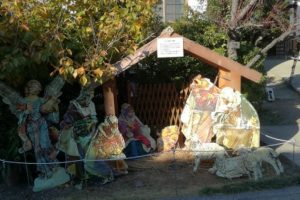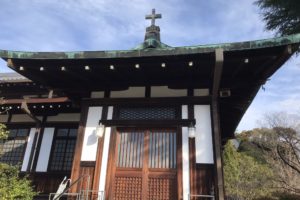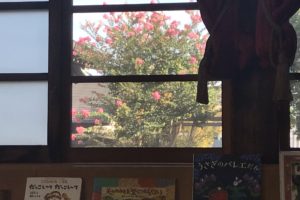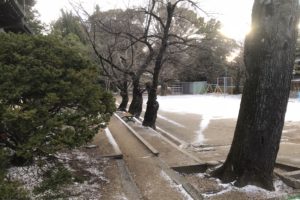December 4, 2022 Second Sunday of Advent, Year A
Isaiah 2:1-5, Romans 15:4-13, Matthew 2:1-12
Rev. Misa Furumoto
Last Sunday, we have entered the season of Advent, a period of four weeks before Christmas. The beginning of Advent is also known as the beginning of a liturgical year. If you think about it, it is strange, isn’t it? Why do we start a new year from preparation days and not from the festive day of Christmas? There is a reason for it. In the Bible, especially in the Jewish world, notion of advent, awaiting is very important. Remember the creation story in the beginning of Genesis. God starts His creation with light. Light wasn’t there from the beginning; there was a time when even light wasn’t there. It says, “the earth was a formless void and darkness covered the face of the deep, while a wind from God swept over the face of the waters. Then God said, “Let there be light”; and there was light.” It is clearly noted that the darkness existed before light appeared.
There is another thing to notice in the same section. There is a phrase which repeats again and again here. That is “And there was evening and there was morning, the first day.” It goes on till the sixth day when He created humankind and all the work was done. Most of us think a new day starts with a sunrise, but in the Bible world, a day starts at sunset the day before. The Jewish Sabbath starts at sundown of Fridays. An evening comes first and then a morning comes, a darkness and then a light. When you think about it, it is totally natural, but putting emphasis on darkness before light sounds somewhat new to us. We tend to think “All’s well that ends well”, but what we learn here is the process of reaching the goal, how we spend the time before the big time is as important as the result. So, this is Advent, and it is the beginning of a year.
What do we do in Advent? Begin opening a window on an advent calendar each day, putting up a Christmas tree, writing and sending Christmas cards to families and friends, planning a Christmas dinner and parties, choosing presents for loved ones. All the cheerful, happy stuff we do. We want to make others happy, and by doing so we become happy, too. It is the time we truly feel that the saying of Jesus is true, “it is more blessed to give than to receive.”
Yes, those are the right things we do in Advent. But are they written in the Bible? Mmm, no. None of happy things is found in the readings prepared for advent. Last week, we read from Matthew where Jesus said to the disciples in such a horrifying and harsh manner, “Keep awake and be ready, for the Son of Man is coming an unexpected hour.” And this and next Sundays, we read about John the Baptist who was sent by God to prepare the way of the Lord and make his paths straight. What John did was not putting up illuminations and decoration on the road where Jesus was to come, but instead proclaiming harshly to the people of Israel, “Repent, for the kingdom of heaven has come near!” Not only his voice but his appearance was also scary. He wore clothing of camel’s hair with a leather belt around his waist, and his food was locusts and wild honey, it says. People came from all over the place to confess their sins and get baptized.
The role of John was to make people turn toward God and clean up their rooms in their own hearts before they meet Christ the Lord. He here describes Christ as the scariest and powerful judge who throws people who do not repent into the fire. Maybe this was the image of God people of old-testament time had. But we now know Jesus was sent as the Savior of us all sinners and to let us know that God is love.
Many Jewish people then thought that they will be automatically saved as they were chosen ones, sons and daughters of Abraham. So, John the prophet warned them. It can be same to us. Aren’t we feeling safe just because we are baptized Christians? We go to church, read the Bible, and say the Lord’s prayer, but are we really facing God? Are we really living for God and not for ourselves? Aren’t we being superficial Christians?
Advent is the time to think about these. And there is one more important thing. The time of advent also reminds us that our whole life spent here on earth is advent. Our death is not the end but it is a gateway to our eternal life. Our days on earth are mere ways towards the glorious entrance to a new life. So, how would you spend your time of advent? We don’t need to be afraid because we know who is waiting for us spreading his arms wide open. What we need to do is only to follow in his footsteps.
In the name of Father, of the Son, and the Holy Spirit, Amen.













